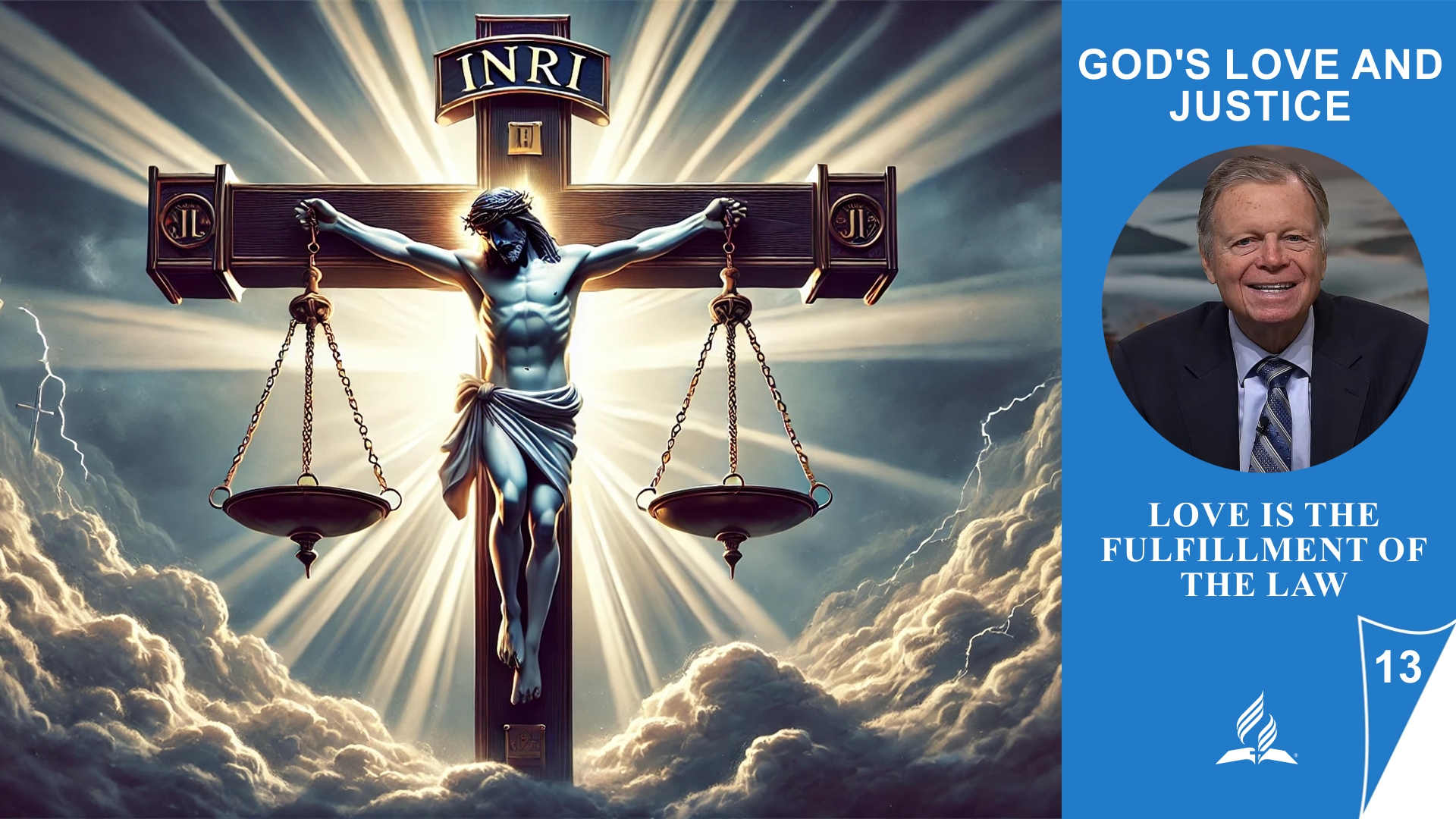

13.2 The Law Is Holy and Righteous and Good
The Law – A Reflection of God’s Love and Holiness
Read Romans 6:1–3 and then 7:7–12, with special emphasis on verse 12. What do these verses tell us about the law, even after the death of Christ?
The verses from Romans 6 and 7 powerfully show the place of God’s law even after the cross. Paul makes it clear: grace does not abolish the law—instead, it brings us into a new relationship with it.
-
Grace is not a license to sin
In Romans 6:1–3, Paul counters the idea that we should “remain in sin” just because grace abounds. Those who are in Christ have been baptized into His death—this means: the old self is dead, and a new life has begun. This new life is characterized by turning away from sin, and the law helps us understand what sin truly is.
-
The law is good because it leads us to truth
In Romans 7:7–12, especially verse 12, Paul describes the law as holy, just, and good. The problem is not the law—the problem is in us. The law exposes what is wrong within us; it’s like a mirror. And this mirror leads us to the realization that we need salvation—which we can receive only through Jesus Christ.
-
Christ affirms the law
Jesus did not come to abolish the law (see Matthew 5:17–18), but to fulfill it. His entire life was a perfect example of loving obedience. Through this, He showed us that the law is not outdated but eternally relevant—because it reflects the character of God: love, truth, justice, and holiness.
-
The law remains—because of love
That God Himself wrote the Ten Commandments with His own finger on stone tablets (Exodus 31:18) shows their unchanging nature. In a world full of moral relativism, the law reminds us of an eternal truth: Love for God and others is not arbitrary but concrete, made visible in God’s commandments.
Conclusion:
The law is not the enemy of grace—it is the guidepost that leads us to grace. It shows us who we are, who God is, and how we are to live. And whoever lives in Christ will not see the law as a burden, but as an expression of divine love—holy, just, and good.
How does this connection between law and love help us better understand the words of Jesus: “If you love me, you will keep my commandments” (John 14:15)?
The close connection between law and love is the key to correctly understanding Jesus’ words in John 14:15:
“If you love me, you will keep my commandments.”
Jesus does not say: “Keep my commandments to earn my love.”
He says: “Because you love me, you will keep my commandments.”
-
Love is the origin of obedience
If we understand the commandments as an expression of God’s character—a character defined by love, justice, and truth—then we see that obedience naturally flows from love.
Just like a child wants to please a parent or a friend acts loyally, someone who loves Jesus will desire to do what pleases Him—not out of obligation, but out of love.
-
The law shows what love looks like
Many say, “I love God,” but what does that really mean?
Jesus says: Look at my commandments! They show what true love for God and others looks like.
-
Those who love God will not follow other gods, will honor His name, and will spend time with Him (e.g., the Sabbath).
-
Those who love people will not harm them but honor them, be honest, faithful, just, and compassionate.
-
Obedience is a sign of relationship
Keeping the commandments is not a cold checklist—it is a sign of genuine relationship.
Just as in a love relationship, you care about the values and desires of the other person—so we care about God’s commandments if we truly love Him.
Final Thought:
Love is the motivation, the law is the direction.
Jesus’ words in John 14:15 show that true love for Him is not just a feeling in the heart, but something visible in how we live—a loving, obedient lifestyle that honors God’s will.
Obedience is not the price for God’s love—it is the fruit of it.
The connection between law and love is not just a theological idea—it has practical meaning for our everyday life and faith. God’s law is not abstract—it touches us where we live, work, think, and act.
-
The law reminds us daily of God’s standard
In everyday life, we constantly face decisions between right and wrong. God’s law—based on love and justice—is like an inner compass:
-
In conflict, it reminds us to be patient, truthful, and forgiving.
-
In family life, it helps us honor, serve, and stay faithful.
-
At work, it leads us to honesty, respect, and responsibility.
-
In our free time, it invites us to make space for God (e.g., through Sabbath rest).
-
The law shows us our dependence on Christ
No one can keep God’s commandments perfectly—this is exactly why the law acts as a mirror that shows us our need for Christ. This insight keeps us humble and strengthens our faith, because we recognize our daily dependence on Jesus.
-
The law protects and preserves our relationships
The commandments are like a protective space for good life with others:
-
“Do not lie” protects trust.
-
“Do not steal” safeguards property.
-
“Do not covet” encourages contentment.
When we live by these principles, we experience how faith and love become visible and tangible—both for ourselves and others.
-
Obedience born of love makes us witnesses
A lifestyle shaped by love for God and His law impacts others. In a world that often lacks moral anchors, people who live with love, justice, and honesty are a living testimony to God’s character.
Thus, everyday life becomes a mission field—not through words, but through actions.
Final Conclusion:
God’s law is not against our lives—it is for our lives.
It is an expression of His love, a protection for our relationships, and a guide for our faith.
Whoever understands this will also understand the words of Jesus:
“If you love me, you will keep my commandments.” (John 14:15)



 1. The Importance of Truth and Spiritual Growth
1. The Importance of Truth and Spiritual Growth Core message: A life lived in alignment with God’s truth brings the greatest joy to a spiritual leader.
Core message: A life lived in alignment with God’s truth brings the greatest joy to a spiritual leader. 2. Hospitality as an Expression of Love
2. Hospitality as an Expression of Love 3. A Warning Against Abuse of Power and Pride
3. A Warning Against Abuse of Power and Pride

 5. Personal and Heartfelt Communication
5. Personal and Heartfelt Communication In Summary: The Message of 3 John
In Summary: The Message of 3 John Introduction
Introduction Commentary
Commentary Summary
Summary Message for Us Today
Message for Us Today





 The Message of the Second Epistle of John
The Message of the Second Epistle of John Overview:
Overview: Central Message:
Central Message: Core Statement:
Core Statement: Relevance for Today:
Relevance for Today: Introduction
Introduction Commentary
Commentary Truth and love are the two foundational pillars of Christian fellowship.
Truth and love are the two foundational pillars of Christian fellowship. Summary
Summary Message for Us Today
Message for Us Today In a time when truth and love are often set against each other, this letter reminds us:
In a time when truth and love are often set against each other, this letter reminds us:

